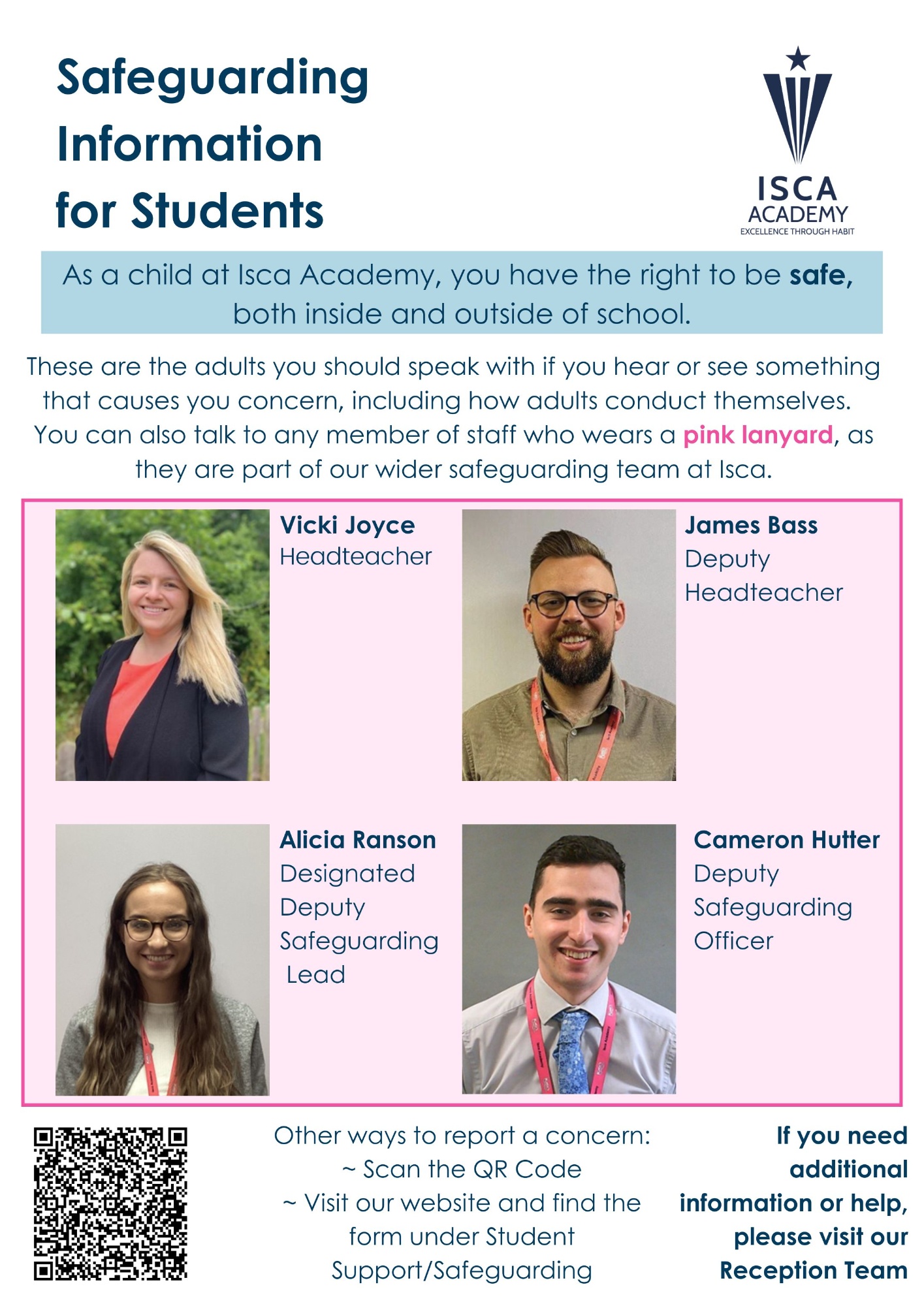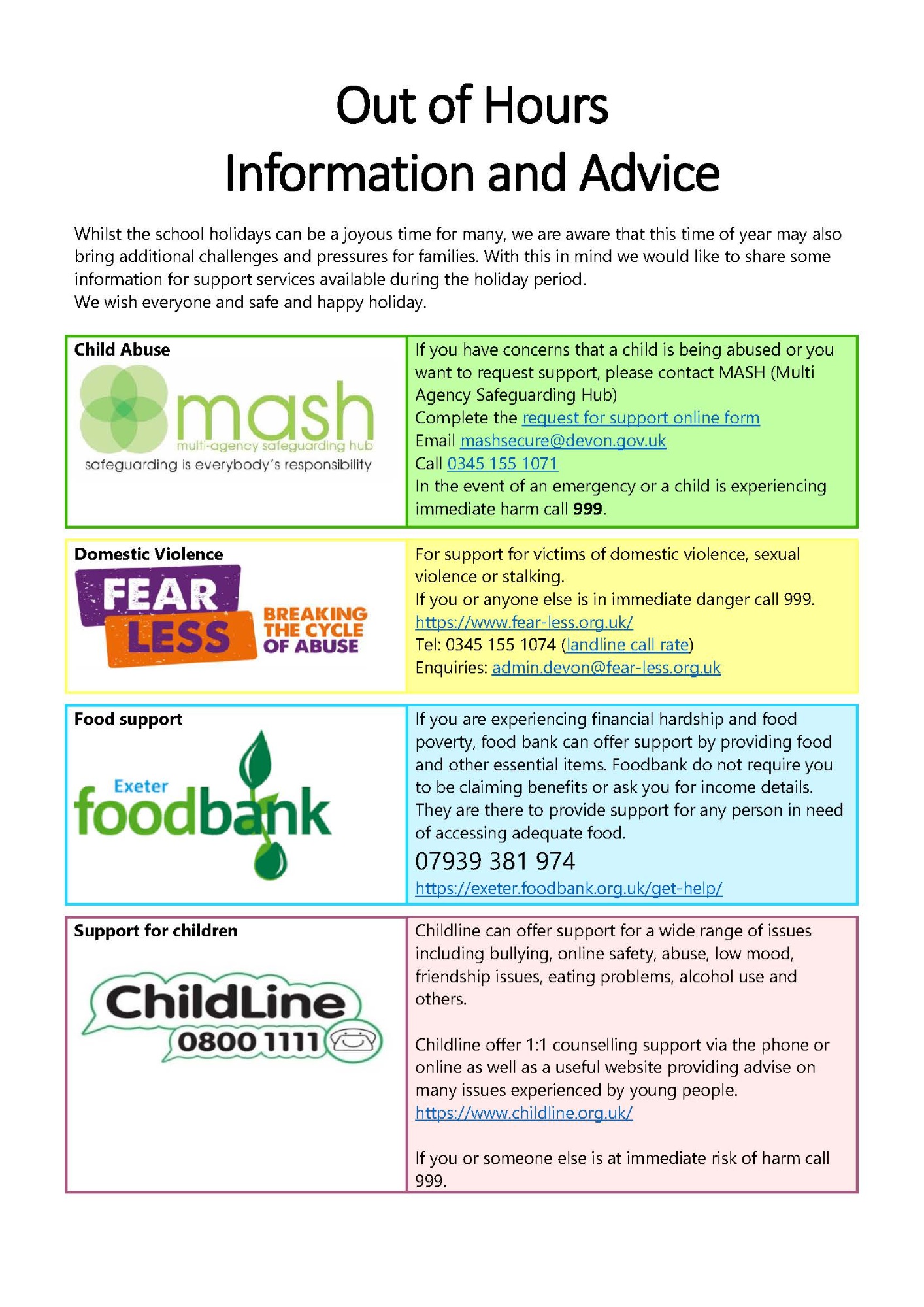Safeguarding
Safeguarding at Isca Academy
Isca Academy puts safeguarding at the heart of everything we do and every single member of our team knows that it is everyone's responsibility to keep our children safe. Through the Education Act 2002, Keeping Children Safe In Education and Working Together to Safeguard Children statutory guidance, we always work to put our children's safeguarding and wellbeing first.
We aim to create and maintain a safe learning environment for children and young people, and identify where there are child welfare concerns and take action to address them, in partnership with other organisations where appropriate. The school’s responsibility to safeguard and promote the welfare of children is of paramount importance. Our policy and annexes will be reviewed annually, unless an incident or new legislation or guidance suggests the need for an interim review.
Child protection statement
We recognise our moral and statutory responsibility to safeguard and promote the welfare of all students. We endeavour to provide a safe and welcoming environment where students are respected and valued. We are alert to the signs of abuse and neglect and follow our internal procedures to ensure that students receive effective support, protection and justice.
Child Protection and safeguarding procedures apply to all staff, volunteers and governors and any adult visiting the school site and are consistent with those of the local safeguarding children board (LSCB). Everyone who comes into contact with children and families has a role to play in safeguarding children. School staff form part of the wider safeguarding system for children.
Our school Child Protection and Safeguarding Policy can be read here.
Our Senior Designated Leads for Child Protection are:
- Vicki Joyce Headteacher
- James Bass Deputy Headteacher/Designated Safeguarding Lead (DSL)
- Alicia Ranson Designated Deputy Safeguarding Lead (DDSL)
- Cameron Hutter Deputy Safeguarding Officer (DSO)
The nominated child protection governor is Victoria Hatfield.
The Devon Safeguarding Board website has further information for parents, children and those working with them, and can be found at http://www.devonsafeguardingchildren.org/

Student Safeguarding Reporting Form
It can be very hard for children and young people to speak out about issues that affect their safety and wellbeing or that of their friends. Often they fear there may be negative consequences if they tell someone.
Some may delay telling someone about their concerns for a long time, while others never tell anyone, even if they want to.
It is vital that children and young people are able to speak out and that whoever they tell takes them seriously and acts on what they’ve been told.
For this reason Isca Academy have created a Student Safeguarding Reporting Form here, which they can use from now.
Need help when school is closed?
See our poster for information about where to find help out of school hours.



NSPCC Helpline
The Department for Education has commissioned the NSPCC to launch a new helpline called Report Abuse in Education. The helpline comes after numerous anonymised testimonials of sexual harassment and abuse in schools and colleges were recently shared to the Everyone’s Invited website.
The newly launched helpline will provide support to:
- children and young people who want to share current and non-recent experiences of sexual abuse and harassment
- children and young people who want to talk about being involved in or witnessing any incidents
- anyone who works or volunteers in a school setting and needs support and guidance
- adults who have experienced non-recent abuse
- parents and carers who are concerned about their own child or other children.
Following the troubling testimonies of sexual harassment and abuse documented on the Everyone’s Invited website, we’re here to help.
The NSPCC has a new helpline to support children and young people, and offer guidance to adults and staff working with pupils.
The helpline can be contacted on 0800 136 663, or by emailing [email protected].
Links for specific safeguarding issues
Professional organisations are available to provide up-to-date guidance and practical support on specific safeguarding issues. Teachers can also access up-to-date government guidance on the issues listed below via the GOV.UK website:
- Keeping Children Safe in Education
- child missing from education
- child missing from home or care
- child sexual exploitation (CSE)
- bullying including cyberbullying
- domestic violence
- drugs
- fabricated or induced illness
- faith abuse
- female genital mutilation (FGM)
- forced marriage
- gangs and youth violence
- gender-based violence/violence against women and girls (VAWG)
- mental health
- Online Safety
- Peer on Peer Abuse
- private fostering
- sexting
- teenage relationship abuse
- trafficking
